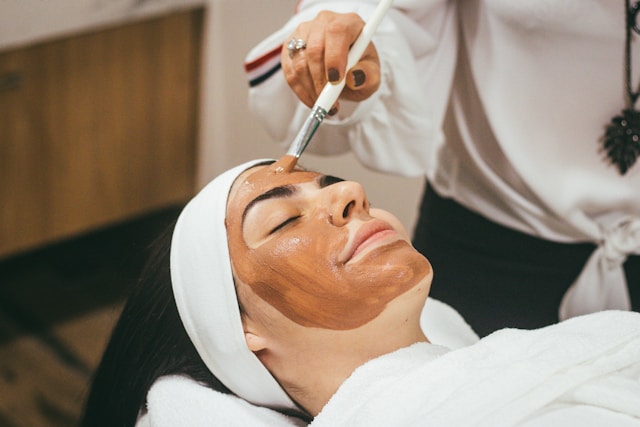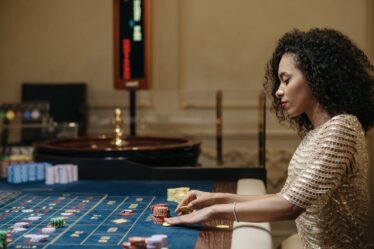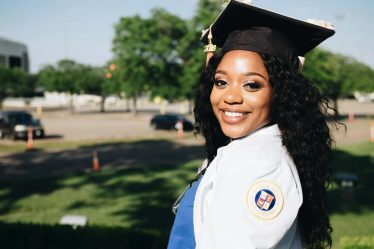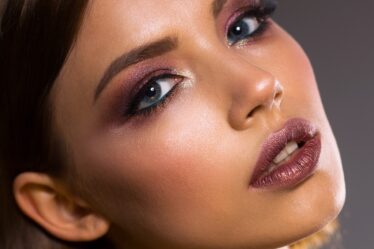
Some people might deem makeup vain; a mere tool for vanity or surface-level beauty. But for others, it’s much more than that. Makeup can be a tool for artistic expression, as is the case with some makeup artists. Just like painters paint on a canvas, makeup artists create the art on faces.
In the case of trans women, makeup represents a powerful tool of transformation, and not just in appearance, but more so in identity and self-acceptance. For someone navigating gender dysphoria, applying makeup is not about impressing others but rather about recognizing themselves. Thus, trans women find makeup validating, since it helps them feel aligned with the woman within.
Wearing makeup is an appearance-affirming action, and according to a 2022 study in the Journal of LGBT Issues in Counseling, these kinds of actions have a direct impact on improving self-esteem and reducing levels of depression in trans individuals.
Trans identity & the power of presentation
The connection between makeup and trans identity runs deep. Trans women want to be seen the way they want to be seen, and makeup helps with that. Historically, it’s always been women wearing makeup, so we commonly link it to femininity. That’s why trans women apply it to be presented in a way that’s aligned with their gender identity, also helping reduce gender dysphoria.
Beyond visibility, there’s also power in the act of doing makeup. Some consider it a moment of self-care, where they can tune into their body and take control. With a society that is constantly questioning trans existence, having a personalized self-care routine for themselves can be soothing and revolutionary. Think of it as a way of saying “I exist, I’m worthy, I’m me”.
Famous trans makeup artists
Trans people are taking representation and self-expression to the next level by grabbing the spotlight and being the driving force behind the beauty industry itself. There are numerous trans makeup artists who have carved out their spot in the industry, making a name for themselves. This is a bold move because they’re also making space for others like them to be seen, valued, and celebrated.
- Nikkie Tutorials (Nikkie de Jager)
Nikkie de Jager is probably one of the most recognizable names in the beauty and makeup world. She had a YouTube channel named NikkieTutorials where she came out as transgender in 2020 to her 13 million subscribers. Since then, she’s been making makeup tutorials, showing her artistry to the world and normalizing trans visibility in mainstream beauty spaces.
- Gigi Goode
The breakout star from RuPaul’s Drag Race, is known for her transformative makeup looks. Before becoming famous, she already worked as a makeup artist for music videos. Now, she collaborates with important celebrities like Lil Nas X and Paris Hilton.
- Nikita Dragun
You’ve probably heard this name before. Nikita is a beauty influencer and makeup artist who became famous through her YouTube channel where she shared makeup tutorials. Then, in 2019, she launched her own cosmetics line, Dragun Beauty, which is specifically designed for trans individuals.
- Joseph Harwood
This British makeup artist, model, and digital influencer is known for their transformative makeup techniques. They became the first transgender person to win a reality show, more precisely “The You Generation”. Joseph has collaborated with important beauty brands, and their main focus is to promote beauty that’s inclusive.
- Jeffree Star
Jeffree is a trans icon and one of the most influential trans people in the beauty industry. He started as a makeup artist and internet personality on MySpace before they launched their own brand in 2014, Jeffree Star Cosmetics. Jeffree has turned their passion for makeup into a multi-million dollar empire, inspiring millions or trans beauty lovers to be their true selves and use makeup for self-expression.
Where the industry is headed
It’s clear that the makeup industry has changed and is still changing… but just not fast enough. Brands like Jecca Blac, MAC, and Fenty Beauty have featured trans models, spreading gender-inclusive messages. While this is positive, inclusivity in campaigns is only the start. More brands should follow the same steps, and representation should always be consistent.
One thing is clear: when beauty becomes a source of empowerment, you know the journey is more than skin deep.



